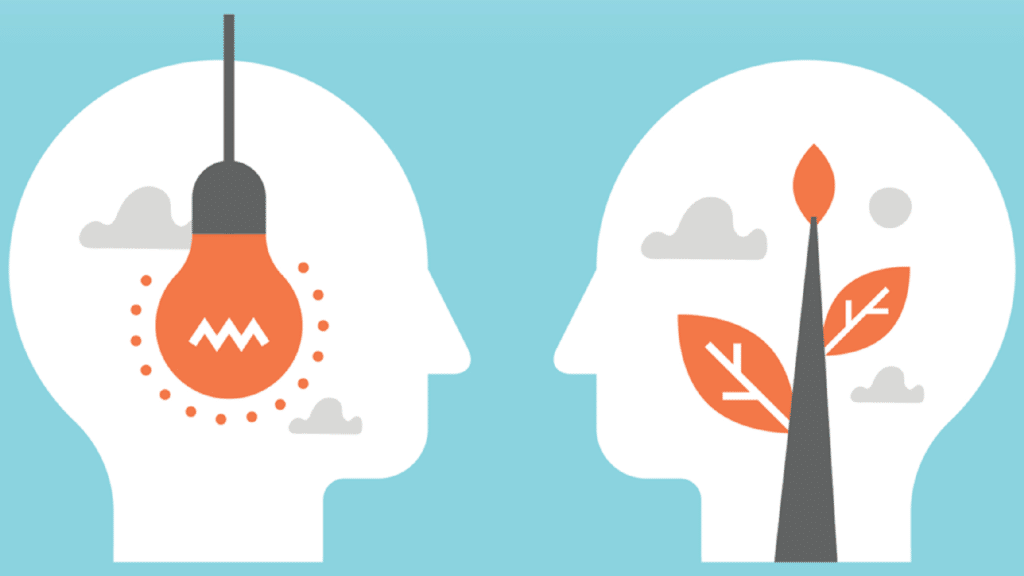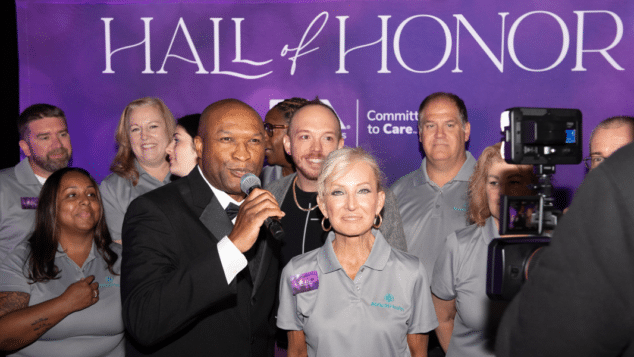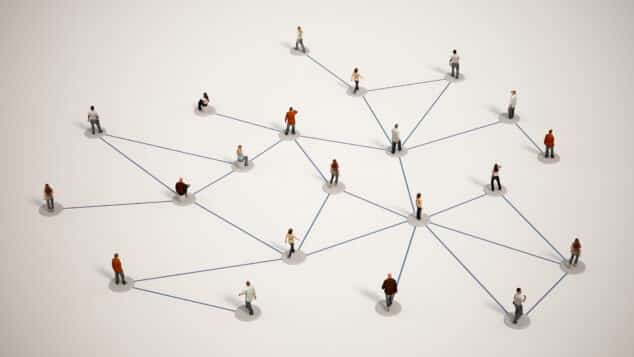The Mentoring Mix: Optimizing Your Personal and Organizational Mentorship Efforts

The data isn’t surprising: Mentorship (or the absence of mentorship) has a distinct, quantifiable impact on your career. According to a Journal of Applied Psychology analysis of 43 mentorship studies, employees that receive mentoring are more likely to obtain higher compensation, a greater number of promotions, and higher overall career satisfaction.
Personal Mentorship Pathways
If we know mentorship is critical to career success, why are so many professionals struggling to secure mentoring relationships? “As human beings, it’s difficult for us to ask for what we want or need, so it’s hard for someone to ask another person to mentor them,” says Cecilia Sepp, CAE, CNAP, CEO of the 501c League. In fact, the need for mentoring guidance has been especially apparent in association management. “In July 2018, I was reading a post in ASAE’s Collaborate community where a member was again asking about a mentoring program. ASAE does not provide one, but requests and inquiries have been made over the years. As I was typing a reply to the person asking the question, I decided I would start a mentoring program to help people connect. I found a need in the market and created a program to fill it. As of January 2019, the 501c League has made 25 mentoring pair matches.”
While the pathway to developing meaningful, personal mentoring relationships is unique for every individual, there are four mentor archetypes that have served me well in my career journey that may help to spark some inspiration in you.
The Impartial Impactor
An impartial impactor is an individual who is not a current colleague but has a strong understanding of your role and industry. He or she can provide you with objective feedback, as there is no personal stake in your results other than the goodwill of guiding a fellow professional. In my journey, that individual is Scott Oser, president of Scott Oser Associates, with whom I was connected via the 501c League. “I think it’s valuable and actually recommended for mentees to have a mentor outside their organizations,” says Oser. “Someone outside of your own organization will have a different perspective than an insider. They will be experiencing different situations and different people on a regular basis and having that variety in a mentor can be very valuable.”
The Attitude Adjuster
An attitude adjuster is a coach, not a cheerleader. This is an individual whose leadership and positivity inspire you, but who is also comfortable providing you with a perspective or attitude recalibration when needed. “Your attitude plays a vital role in the outcome of your journey, says Burt Blanchard, independent, a former colleague who also serves as my attitude-adjusting, inspiration-giving mentor. “In keeping a positive attitude, make sure it’s a real one, and one of inquisitiveness. Keep your outlook not only to exploration but the joy of possibilities and discoveries. That will drive you to interesting connections, experiences, and outcomes, and that’s the message I hope to convey to mentees.”
The Office Oracle
An office oracle is an individual with whom you currently work. He or she has history and tenure at the organization and can assist you with navigating the unique politics, policies, and personalities of a new organization or role. For example, I joined the Congress of Neurological Surgeons in January, and was immediately paired with my office oracle via the ‘CNS Buddy Program.’ My buddy has provided me with insight and perspective, as well as a friendly face to smooth what can be a stressful transition.
“The program was established in 2013 in an effort to offer new employees the benefit of having a single point-of-contact to learn the ins and outs of the CNS,” says Dawn Davis, director, human resources at CNS. “The program also provides buddies the opportunity to motivate others and enhance their leadership and mentoring skills. Our buddies genuinely care about new employees and want their experiences to be positive and productive.”
The Path Paver
The path paver is an individual that is further along than you in your desired career trajectory. Path pavers help you see your own possibilities reflected in the journeys of others. Personally, I have had the benefit of connecting with a handful of CEOs, entrepreneurs, and volunteer leaders over the past several years who have served as seminal guideposts at various points in my formative journey, likely without even knowing I viewed them as mentors.
The path paver can be the most elusive type of mentor as these individuals are in high-demand for mentorship and typically serve in highly demanding roles. While you may not find a singular path paver to meet your mentoring needs, the culmination of wisdom found from even a few brief moments of interacting with one of these leaders can be the impetus for meaningful change.
Organizational Mentorship Programs
We’ve seen how mentoring matters on a personal level, so why not provide that same value to your members? Easier said than done when the association landscape is littered with the corpses of dead or dying mentoring programs. Julie Kantor, president & CEO, Twomentor, LLC has assisted associations with mentoring initiatives to drive: millennial retention, diversity, knowledge transfer, and succession planning; and is well-versed in turning around organizational mentoring programs.
How can associations provide adequate training and support for mentorship program participants?
Kantor: At Twomentor, we feel strongly about creating a community around mentoring as part of annual programming. Associations are a phenomenal place to drive organizational mentoring, and much can be done at conferences as well as national or global webinars. Associations can also train member companies to build (a more wholesale approach) and offer mentor certification trainings.
How can associations mitigate or avoid unconscious bias in participant selections and relationships?
Kantor: People tend to mentor (and sponsor) in their own likeness. Likewise, people tend to choose mentors who remind them of themselves. Thus, mindfulness and a focus on diversity is critical. A Cornell University study by Kaitlyn Conboy and Chris Kelly illustrated some powerful findings. It showed that mentorship increases the promotion and retention rates of minority men and women by 15–38% over non-mentored minorities. It has been inferred that due to innate biases influence people to help those similar to themselves. Therefore, the lower number of minorities in upper management means that those who do not have a mentor, either organic or assigned, will not benefit due to lack of access.
What types of mentoring programs and experiences do you recommend? How can organizations think outside-the-box about mentoring?
Kantor: There are a number of options we recommend and assist associations with, including:
- Customized mentor, mentee, and leadership training seminars with an eye on building a diverse and diversely skilled workforce
- Developing a customized mentor action guide and resource tools for your teams, including scheduling third-party partner technology demonstrations if needed
- Education at conferences seminars and webinars around key issues impacting millennial retention, including women in STEM, diversity, men monitoring women in the age of #MeToo, and the business case for mentoring
Associations Talk: Learnings from 3 Associations with Successful Mentoring Programs
How would you describe your association’s mentorship program?
Matthew Novotny, Senior Manager, Honors & Diversity, Academy of Nutrition and Dietetics:
“The Academy’s eMentoring program is an online member benefit that matches mentors and mentees together easily and accurately, while flexibly fitting around unique schedules and communication styles. Participants complete online profiles and choose whether to be mentors, mentees or both. The site provides match suggestions based on commonalities, such as professional areas of interest, practice, number of years in the field, languages spoken, and preferred communication style. Each participant has a bio page that shows all his or her profile information, as well as Academy groups he or she is involved in. Once a match has been established, mentees and mentors can communicate through the site’s built-in messaging features or their own communication channels.”
Why do you think so many associations struggle with mentorship program design and implementation?
Michaela Gaviorno, Manager, Member Engagement, American Staffing Association:
“For associations with company memberships, selling the concept of a mentorship program may be met with hesitation by key stakeholders. Some members might be wary of allowing their employees to participate for fear of internal recruiting or sharing company strategies with competitors. Clearly defining the program mission and purpose to potential participants can alleviate some of these concerns.
Program design and implementation can also be difficult due to expense and time. Providing mentees with a robust mentor directory can become a challenge, especially with a wide array of job titles and responsibilities. It is important to recruit all type of mentors for the program to ensure that mentoring needs are met for all your association’s membership base—to the best of your abilities.
Although many associations set out to create mentoring programs that empower staff of member companies to select their own mentors through an online directory, association staff are often tasked with manually matching these relationships. Manual matching is most often experienced within the first year of the program’s implementation but can also span longer—even when utilizing software to assist with populating a mentor/mentee directory.”
How has your program pivoted or changed in scope since its implementation?
Brittany Nagy, MPH, Manager, Early Career Member Engagement, American Academy of Pediatrics:
“The AAP Mentorship Program began offline, and it its early days, it relied on the manual matching of members. In 2014, the AAP partnered with Chronus mentoring software to implement the online platform that is still available to members today. Much like dating websites, the program offers a rating (0-100%) for each match identified by the platform’s algorithm, and mentees can prioritize the importance of characteristics (e.g. gender, specialty, location, clinical interests, medical school, etc.) that mentors provide in their profiles, to help the system identify the best matches.
In the past six months, the program has seen significant growth, much of which is due to the implementation of monthly program themes. These themes vary, and past months have focused on women in medicine, applying to residency, and wellness and self-care. A broad marketing strategy drives traffic to the monthly forums, which in turn contributes to increases in membership and mentorship.”
Tags
Related Articles
The Emergency Nurses Association Utilizes Design Thinking to Reimagine its Awards Ceremony
In a prime example of intrapreneurship, the ENA utilized design thinking to innovate within the...
Report Reveals Strategies to Overcome Membership Decline
McKinley Advisors’ Membership Reset report provides a roadmap that association leaders can use to refocus...
Member Retention: More Than Just a Number
Learn how the AANA used humor and multichannel marketing to win back lapsed members.




